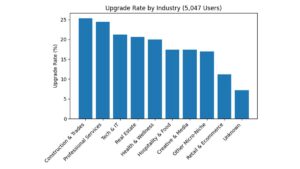From Receipts to Real Profits: Why Landlords Need Smarter Tracking
Managing rental properties is not just about collecting rent – it is about controlling expenses. For landlords and Airbnb hosts, tracking rental property expenses accurately is one of the most important factors in maximizing profitability. Done right, expense management helps you stay on budget, claim every tax deduction, and see exactly how much money each property is making.
The Benefits of Expense Tracking for Rental Properties
Enhanced Budget Control
When you know exactly where your money is going, you can plan better and avoid overspending. Tracking expenses helps you allocate resources, forecast future costs, and even renegotiate contracts with service providers like cleaners, maintenance companies, or utility providers.
Easier Tax Deductions
Tax season is simpler when every transaction is organized. From property repairs to depreciation, accurate records ensure you capture every deduction. Well-documented expenses also keep you prepared in case of an audit, protecting your claims and reducing stress.
Clearer Profitability
Up-to-date expense tracking allows you to assess the real profitability of each property. This helps you decide whether to raise rent, invest in improvements, or expand your portfolio. With clear records, you always know the financial health of your rental business.
Setting Up an Expense Tracking System
Choose the Right Tools
Manual spreadsheets can work at first, but they quickly become messy and error-prone. A digital rental expense tracker saves time and improves accuracy.
SparkReceipt offers key features for landlords and Airbnb hosts:
- Receipt Scanning: Snap receipts with your phone – SparkReceipt extracts the data automatically.
- Bank Statement Digitization: Import and match transactions against receipts for accurate records.
- AI Categorization: Expenses are categorized automatically, even line by line, into relevant groups like repairs, utilities, or cleaning.
- Cloud Storage: All receipts are securely stored and backed up, accessible anytime.
- Unlimited Sub-Accounts: Track each property separately. Perfect for managing multiple rentals or Airbnb units.
Organize Expenses by Category
Creating clear categories makes reporting and analysis easier. Common categories for rental property tracking include:
- Maintenance and Repairs
- Cleaning and Supplies
- Mortgage, Insurance, and Property Taxes
- Utilities (water, electricity, internet, subscriptions)
- Appliances, Furniture, and Furnishings
- Professional Services (accountants, photographers, legal)
- Advertising and Marketing
- Management Fees
With SparkReceipt, AI can handle most of this categorization for you. You can also create custom categories and add tags for extra flexibility.
Best Practices for Rental Expense Tracking
Record Expenses Promptly
Log receipts as soon as you receive them. Waiting increases the chance of lost or forgotten expenses. A mobile app like SparkReceipt lets you capture receipts on the spot and automatically log them.
Use Technology for Accuracy
Automation reduces human error. SparkReceipt extracts key details (date, amount, vendor) and categorizes them instantly. This ensures your records are consistent and accurate.
Schedule Regular Reviews
Set aside time monthly to reconcile expenses against your bank statements. This keeps your records reliable and highlights any discrepancies early. Use these reviews to evaluate whether your properties are staying within budget and to prepare for tax season with confidence.
Conclusion
Effective rental expense tracking is more than record-keeping – it is the foundation of a profitable rental business. For landlords and Airbnb hosts, tools like SparkReceipt make it easy to scan receipts, automate categorization, and manage multiple properties with clarity.
By setting up the right system and sticking to best practices, you gain control over costs, simplify tax filing, and ensure your rental business continues to grow.



